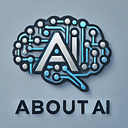Rethinking AI Evaluation: Introducing the GAIA Benchmark
As AI systems continue to evolve rapidly, a critical question remains: how do we fairly and meaningfully evaluate their true general capabilities? A new proposal challenges the conventional trend of creating ever more difficult benchmarks for humans — and instead shifts the focus toward tasks that are simple for people but still elusive for machines.
In “GAIA: A Benchmark for General AI Assistants” by Grégoire Mialon, Clémentine Fourrier, Craig Swift, Thomas Wolf, Yann LeCun, and Thomas Scialom (2023), the authors introduce GAIA, a benchmark designed to assess the robustness of AI systems across a variety of practical tasks. GAIA’s questions are crafted to reflect real-world scenarios, requiring skills like reasoning, web browsing, multi-modality processing, and precise tool use. Despite their conceptual simplicity for humans, these tasks reveal a stark performance gap: humans achieve a 92% success rate, compared to only 15% for GPT-4 even when equipped with plugins.
The GAIA benchmark departs from traditional approaches by avoiding artificially complex academic tests. Instead, it targets grounded tasks that require a blend of perception, action, and reasoning, emphasizing interpretability, non-gameability, and ease of evaluation. Notably, success in GAIA is positioned as a meaningful milestone toward achieving Artificial General Intelligence (AGI). The authors argue that real-world robustness, not academic trickiness, will be a more decisive indicator of true general intelligence in AI systems.
To me, this paper is interesting because it reorients the discussion around AI evaluation toward practical competency rather than academic difficulty. It highlights a more grounded and arguably more urgent pathway for measuring meaningful AI progress — one rooted in the realities of how these systems will be used in daily life.
Recently, I completed the AI Agents course from Hugging Face and for the final assignment you had to build an agent that would solve above 30% of the questions that followed the GAIA framework. I could see how for AI based solutions that follow an agentic architecture, this type of tests captures in a better way the capabilities of providing grounded and practical solutions in comparison to solving math problems.
What is GAIA?
According to HF, GAIA is carefully designed around the following pillars:
- 🔍 Real-world difficulty: Tasks require multi-step reasoning, multimodal understanding, and tool interaction.
- 🧾 Human interpretability: Despite their difficulty for AI, tasks remain conceptually simple and easy to follow for humans.
- 🛡️ Non-gameability: Correct answers demand full task execution, making brute-forcing ineffective.
- 🧰 Simplicity of evaluation: Answers are concise, factual, and unambiguous — ideal for benchmarking.
Difficulty Levels
GAIA tasks are organized into three levels of increasing complexity, each testing specific skills:
- Level 1: Requires less than 5 steps and minimal tool usage.
- Level 2: Involves more complex reasoning and coordination between multiple tools and 5–10 steps.
- Level 3: Demands long-term planning and advanced integration of various tools.
What do you think: Should AI benchmarks prioritize human-like robustness in simple tasks over excelling in tasks that even experts find difficult?

